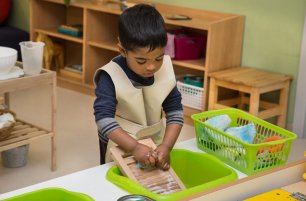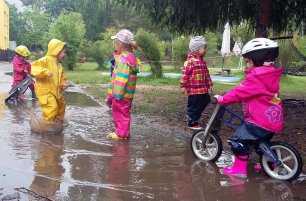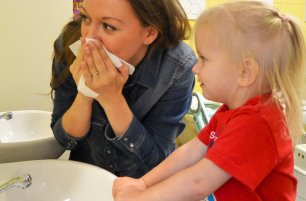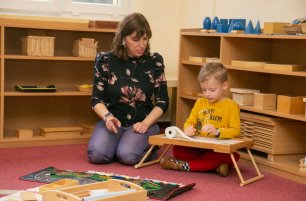Mones
Sorry, this article is only in Czech.

“To give a child liberty is not to abandon him to himself."
Read more
“The first thing to realize about these exercises of practical life is that their aim is not a practical one. Emphasis should be laid not on the word “practical” but on the word life. Their aim is to assist development.” E. M. Standing, Maria Montessori: Her Life and Work
Read more
April showers bring May flowers... here we are in the blustery, chilly beginnings of Spring. It is a time of much anticipation as the first leaves and flowers appear, but also often much frustration for parents as seemingly endless mud, rain and puddles interfere with outside play.
Read more
In our classrooms, we take every opportunity to teach our students how they can independently take care of themselves throughout the day.
Read more
As a child, did you want to become a teacher, or anticipated becoming one?
Read more